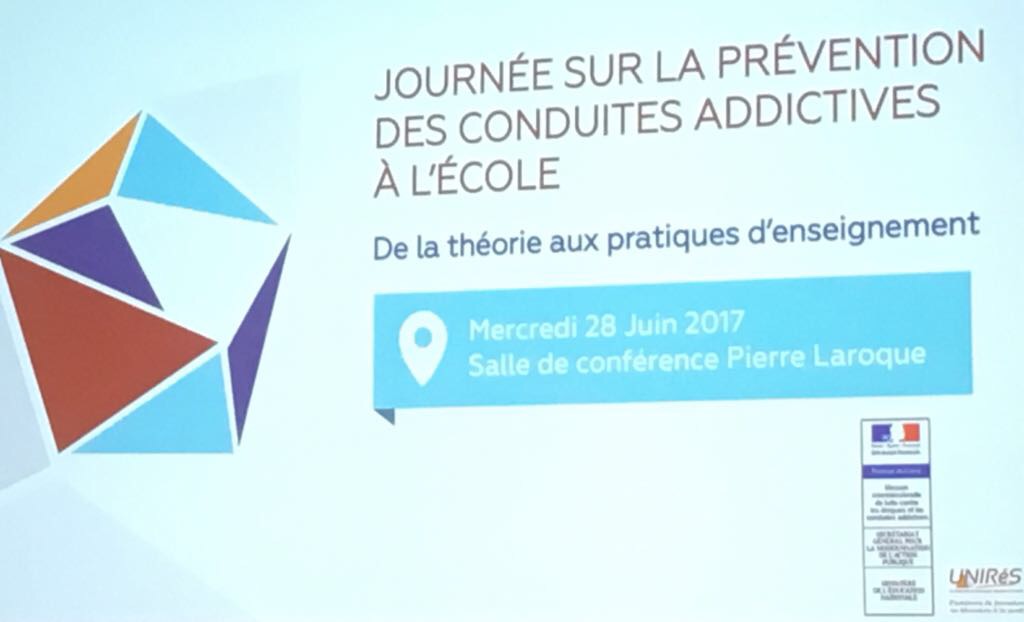A day dedicated to the prevention of addictive behaviour at school, organized by the Interministerial Mission for the Fight Against Drugs and Addictive Behaviour (MILDECA) and its partners was held on 28 June 2017 in Paris. The purpose of MILDECA Day was to ‘bring together stakeholders from National Education, researchers in education sciences, prevention professionals and citizens to enrich the discussions initiated by the MILDECA with a view toward producing the next national strategy on the prevention of addictive behaviour’.
The use of addictive substances by young people is a major challenge necessitating early action to delay as early as possible the age of the first experiments which, as we know, have a negative impact on the educational path of students. Although the school has a central role to play, it cannot alone address an issue as complex as that of addictive behaviours. A partnership approach that is comprehensive, benevolent and built around a common culture is essential. As such, all of the stakeholders must ‘be made regularly aware since each one must feel that s/he has a role to play to protect our youth’ (Buzyn, 2017).
During the day, the emphasis was placed on developing the psychoscial skills of young people which are defined as ‘the ability of a person to respond effectively to the demands and trials of daily life. It is the aptitude of a person to maintain a state of mental well-being by adopting appropriate and positive behaviour on the basis of relationships with others, their own culture and their environment.’ (WHO, 1943).
The restitution of a citizen consultation on the prevention of addictive behaviours in schools has also taken place and demonstrates the willingness of public authorities to involve civil society in the decision-making process around societal issues. More information on citizen workshops is available here





